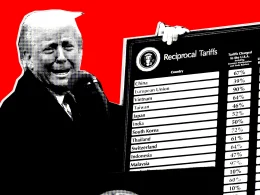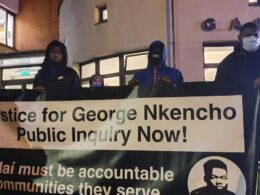By Summer Conneely
Last weekend saw three anti-racist protests in the aftermath of a brutal racist assault on an Indian national in Kilnamanagh, Tallaght. On Friday, a protest in Tallaght itself was held with 400 in attendance. While a far-right counter-protest was feared, only about 20 racists materialised. As well as that, a protest earlier in the day of about 100 was held at the Department of Justice. On Saturday, 1,500 marched in a vibrant anti-racist demonstration in Dublin City Centre.
The demonstrations were marked by significant participation by the Indian community, members of which initiated and led the organisation of the protests, with support from other anti-racist groups, including the Socialist Party.
Violent racist assault
The attack that sparked these protests happened on 19 July, when a group of Irish teenagers violently attacked an Indian man who was stripped and brutally beaten. By chance, a local woman, Jennifer Murray, came across the victim in the aftermath and assisted him. Later, she bravely uploaded a video about the assault which went viral in Ireland, bringing it to mass attention.
The attack was accompanied with baseless online accusations, promoted by online far-right agitators, that the victim was responsible for a sexual crime in the area. Given the far-right’s poor relationship with truth, it’s no surprise that it was later confirmed that no such attack had happened. The cynical use of sexual violence to justify brutal expressions of macho violence is at once, horrifying, ironic, and unsurprising.
Why did Jennifer Murray’s video go viral? Simply put, it connected with what many people already know about the dire state of racism in Ireland, as well as with the real experiences many migrants have faced in this country. Racist rhetoric has been rising for years, and people know other similar racist attacks are occurring with little publicity. In fact, in the wake of the Kilnamanagh attack, people have highlighted a number of other racist attacks in Dublin in recent weeks. These, of course, are coupled racist attacks across the island.
Protests an important step forward
At the demonstrations, many speakers spoke to the fact that the blame for the rise in violent racism lies at the feet of organised far-right forces, and our right-wing Government, which has laid the groundwork for regressive politics in their total unwillingness to deal with the housing, cost of living crisis, and a myriad other social crises. The Government, like the far right, has tried to scapegoat refugees, making a display of chartered flights for deportations. Many also spoke about the growing climate of fear felt by people from migrant backgrounds.
From the positive momentum of these protests, a wider anti-racist movement must be organised – one that can actively challenge the racism being bred in Irish society. Crucial to this aim is the building of a socialist movement, as ultimately our Government is not an aberration; it simply acts within the logic of our capitalist system that prioritises profit above all else. Racism, like all forms of bigotry, has its roots in the capitalist system of domination by the wealthy few, which seeks to divide workers along racial lines.
Of course, ending capitalism isn’t a simple matter, but it starts with everyday organising. We should challenge any and all racist views in our communities and workplaces, organise actions against racist attacks and far-right agitators who attempt to inject poisonous ideas into society, and constantly highlight that the super-rich, not migrants, are the only minority responsible for the ills of society.












